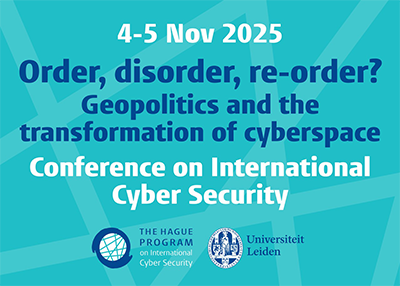
Recording Available | Cyber Persistence Theory: redefining national security in cyberspace, with Richard Harknett
The recording for our September seminar with Richard Harknett is now available on our YouTube channel!
About Cyber Persistence Theory
Most cyber operations and campaigns fall short of activities that states would regard as armed conflict. In Cyber Persistence Theory, Michael P. Fischerkeller, Emily O. Goldman, and Richard J. Harknett argue that a failure to understand this strategic competitive space has led many states to misapply the logic and strategies of coercion and conflict to this environment and, thus, suffer strategic loss as a result. The authors show how the paradigm of deterrence theory can neither explain nor manage the preponderance of state cyber activity. They present a new theory that illuminates the exploitive, rather than coercive, dynamics of cyber competition and an analytical framework that can serve as the basis for new strategies of persistence. Drawing on their policy experience, they offer a new set of prescriptions to guide policymakers toward a more stable, secure cyberspace.
About Richard Harknett
Dr. Richard J. Harknett is Professor and Director of the School of Public and International Affairs and Chair of the Center for Cyber Strategy and Policy at the University of Cincinnati. He co-directs the Ohio Cyber Range Institute, a state-wide organization supporting education, workforce, economic, and research development in cybersecurity. He has served as Scholar-in-Residence at US Cyber Command and National Security Agency and continues to provide analysis. He is co-author of Cyber Persistence Theory: redefining national security in cyberspace (Oxford, 2022). He briefs on Capitol Hill and to US government agencies and has presented both policy briefings and academic research in 12 countries as well as over 100 media appearances. He has held two Fulbright Scholar appointments: in 2017 in Cyber Studies at Oxford University, United Kingdom and in 2001 in International Relations at the Diplomatic Academy, Vienna, Austria, where he holds a professorial lecturer appointment. He has authored over 60 publications in international relations theory, international security, and cyber security studies with over $25 million in grant support.



































_400x286.png)



















































_400x286.jpg)


